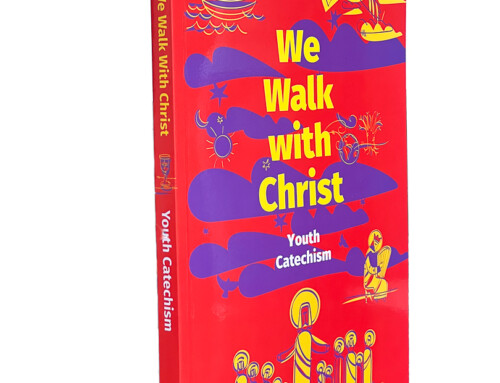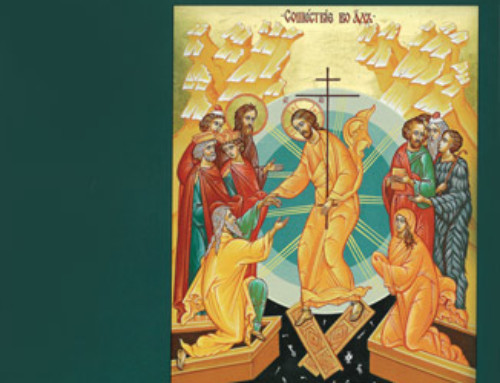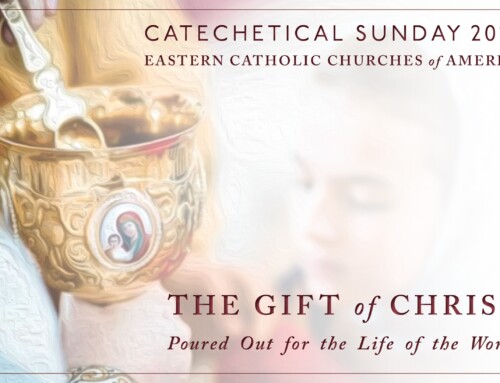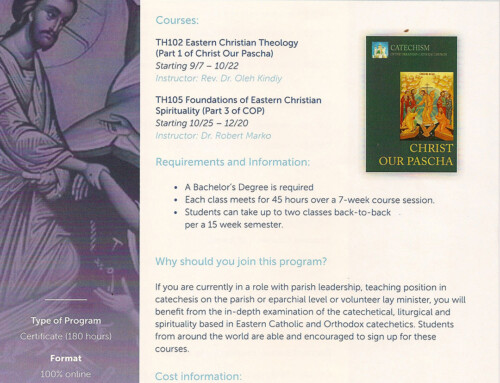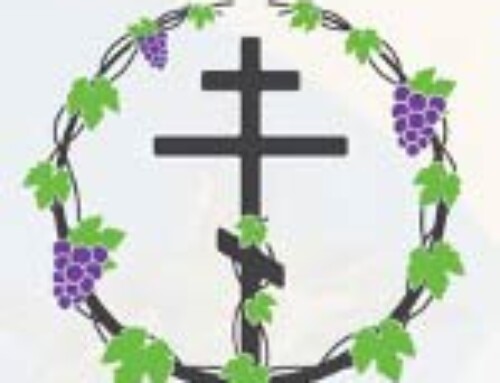The New Testament and the Holy Eucharist
By Very Rev. Archpriest John M. Fields
During this year of the coronavirus pandemic, for many months, clergy, religious and faithful gathered together on the Lord’s Day virtually, participating in the Divine Liturgy through the modern technology of livestreaming. While during these liturgical services, the faithful gave praise, glory and thanksgiving to God and were nourished on the Word through the Gospel and the homily, there was something lacking. Suddenly, except for the limited celebrants at the altar, the parish family was not able to partake of the Body and Blood of Our Lord and Savior Jesus Christ.
In the Last Supper account in the Gospel of Matthew, “Jesus took bread, said the blessing, broke it, and giving it to his disciples said, ‘Take and eat; this is my body.’ Then he took a cup, gave thanks, and gave it to them, saying, ‘Drink from it, all of you, for this is my blood of the covenant, which will be shed on behalf of many for the forgiveness of sins.’” (Mt. 26:28)
During every Divine Liturgy, the humble gifts of bread and wine become the Body and Blood of Jesus Christ during the Anaphora, the Eucharistic Prayer.
“Just as Jesus Christ our Savior was made flesh through the Word of God, and took on flesh and blood for our salvation, so too (we have been taught that) through the word of prayer that comes from him, the food over which the thanksgiving has been spoken becomes the Flesh and Blood of the incarnate Jesus in order to nourish and transform our flesh and blood.” (St. Justin Martyr)
In the Gospel of John, Jesus clearly teaches us: “Amen, amen, I say to you, unless you eat the flesh of the Son of Man and drink his blood, you do not have life within you. Whoever eats my flesh and drinks my blood has eternal life, and I will raise him on the last day. For my flesh is true food, and my blood is true drink.” (Jn. 6:53-55).
In several of our Eastern Catholic churches, we are reminded of this belief as the priest prays as he distributes the Holy Mysteries to the faithful, “The servant of God receives the Body and Blood of Jesus Christ for the forgiveness of sins and live everlasting. Amen.”
As our churches are now open and our parish families once again gather together on the Lord’s Day, let us with fear of God and with faith receive the Body and Blood of Jesus Christ; let us taste of the Source of Immortality.

